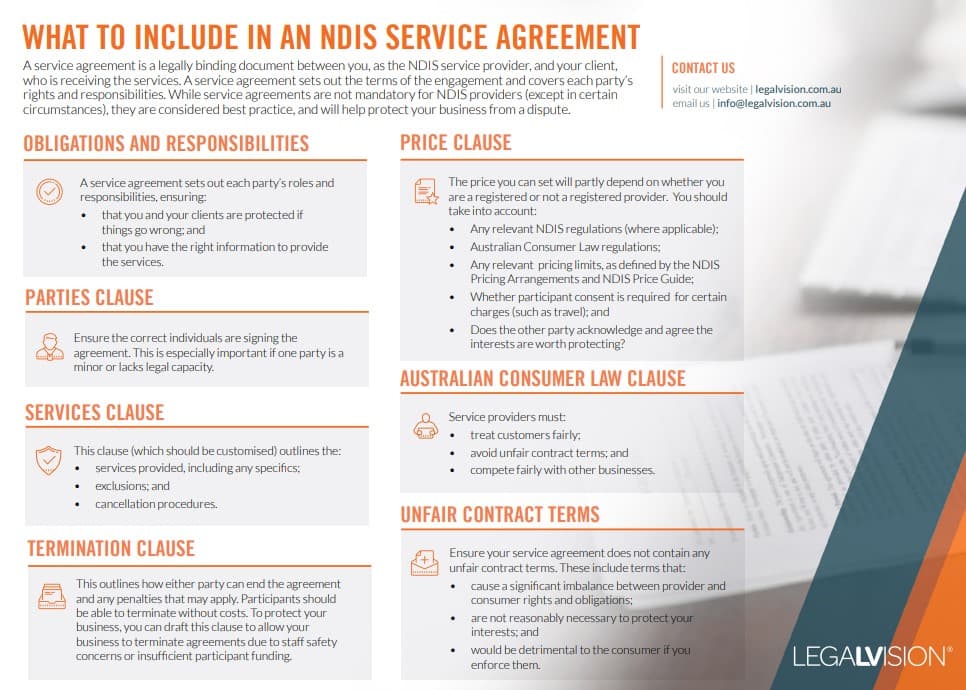If you decide to provide National Disability Insurance Scheme (NDIS) services, it is vital to consider the types of services you will be providing. This is essential as a conflict of interest may exist depending on the types of services you offer. A conflict of interest is not necessarily a problem, provided you manage it appropriately. Furthermore, as the service provider, you must communicate this clearly to the participants. This article sets out what a conflict of interest means, the types of conflict of interest and what measures you must take to manage them.
What is a Conflict of Interest?
A conflict of interest occurs when a person has interests in two opposing areas. The opposing interests make it difficult for the person to fulfil their role without bias or the perception of bias.
What Are the Different Types of Conflict of Interest?
A conflict of interest may be:
- Actual: An actual conflict of interest has occurred.
- Potential: The circumstances suggest a conflict of interest may occur.
- Perceived: There appears to be a conflict of interest; however, it will not be a conflict if it is monitored and communicated to the parties involved.
Regardless of whether a conflict of interest is actual, potential or perceived, the party facing the conflict of interest must declare this.
Continue reading this article below the formCall 1300 544 755 for urgent assistance.
Otherwise, complete this form, and we will contact you within one business day.
Examples of a Conflict of Interest
Suppose, as an NDIS service provider, you provide general disability support services and support coordination services. A support coordinator must provide fair advice by connecting participants with the necessary support. However, because the support coordinator works for you, a conflict exists where they offer your services to the participant instead of another party’s services, which might be more appropriate for the participant.
Another example includes where your support coordinator uses a participant’s confidential information and provides it to another third-party provider for a financial benefit.
What Measures Can I Take to Manage a Conflict of Interest?
Where you offer multiple services to participants, consider the following measures to manage any conflict of interest.
1. Information Separation Between Service Providers and Service Coordinators
Maintaining information separation between personnel who provide general services and personnel who provide support coordination services can minimise conflicts of interest. For example, having separate databases ensures information on support coordination participants is available only within the support coordination team. Furthermore, you should keep information and records of support participants receive confidential between the two teams.
2. Provide Participants With Information Regarding Support Options
Ensure your participants receive all information regarding their support options under the NDIS. For example, provide participants with clear and easy-to-read information on various providers to help them choose their preferred option. The information in these handouts should be similar to make it easy for participants to compare. It is also vital that the participant knows they can choose support from a third-party provider different from where their general service provider works.

This fact sheet will help you to identify the key terms you must include in your NDIS service agreement.
Acknowledging and raising the conflict early with the participant is also an easy first step in managing the conflict of interest.
Furthermore, you should clearly document that you have briefed the participant about a conflict of interest. If any conflict exists, you must discuss this with the participant.
The NDIS Practice Standards also set out what registered NDIS providers must do to avoid real or perceived conflicts of interest in delivering support and services.
What If I Do Not Declare a Conflict of Interest?
Suppose you do not declare a conflict of interest. In this case, upon discovery, a participant may file a complaint against you. The NDIS Commission can take action against a service provider if you have not met your obligations concerning conflicts of interest.
Key Takeaways
As an NDIS service provider, you must ensure you adequately manage any conflicts of interest for your participants. This will not only protect your interests but also ensure that such risks are mitigated for your participants as well.
If you require advice on the NDIS services you intend to provide, our experienced NDIS lawyers can assist as part of our LegalVision membership. For a low monthly fee, you will have unlimited access to lawyers to answer your questions and draft and review your documents. Call us today on 1300 544 755 or visit our membership page.
We appreciate your feedback – your submission has been successfully received.











